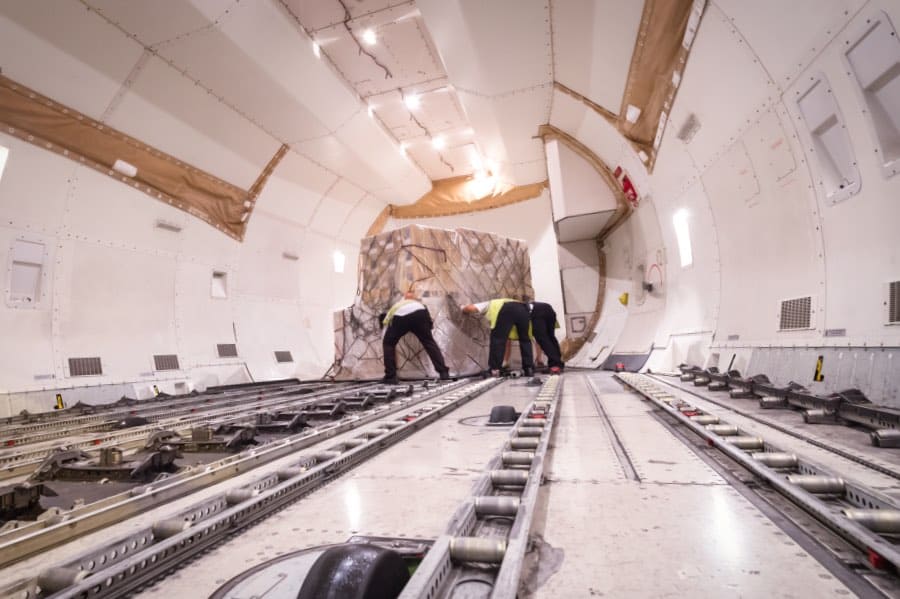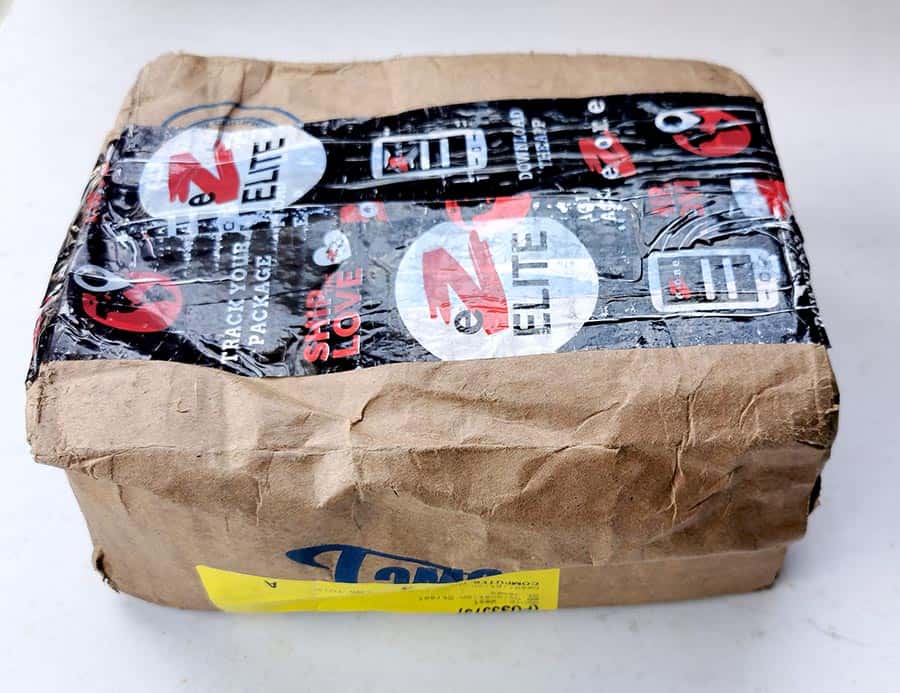
Above: A cargo freighter being loaded. Photo by tratong/DepositPhotos
BitDepth#1264 for August 27, 2020
In the PNM manifesto for the 2020 elections, these words were called out in large, red type: “We will remove all taxes on computers, mobile and digital equipment, cell phones, software, and accessories.”
I urge you to do so at the soonest possible opportunity and to go further, by reversing the tax imposed on the importation of books into the country in January 2016.
Taxing computers was ill-advised, but including books in that cash trawl was an act devoid of conscience.
Why, in a country with an already problematic relationship with thoughtful reading and considered analysis, would anyone want to place additional charges on anyone who wanted to know more?
It’s a question I cannot answer, though I am sure that with your gift for quips, you will be able to dismiss my concerns with some clever words of ineffable wit.
It seems rather less funny that it was the Basdeo Panday administration at the turn of the century that first removed charges on computing equipment and the Kamla Persad-Bissessar administration a decade later that introduced computers to the school system, albeit in hasikara style.The PNM in governance is yet to put a definitive mark on the technology landscape, and this seems an excellent time to do so.
To that end, let me amplify my call for your reconsideration of import revenues to a consideration of the current lunacy at Customs and Excise that has thrown sand into the well-lubricated system of personal imports that the skybox system has established.
In April 2016, months after taxing computers and books, the Finance Ministry doubled down on its concerns about foreign exchange leakage by adding a seven per cent online shopping tax to purchases brought in through that system.
With no hard numbers to back up my sense of the situation, I’m going to guess that the seven per cent solution did nothing at all to stem the tide of purchases, and banks began sending apologetic notes to their customers this year informing of limits on credit card use for online shopping.
In March, the flow of goods through skybox channels completely tanked, according to Paul Pantin, Chairman of Express Logistics Committee in the AMCHAM and director of eZone.
The committee represents 60 companies operating under the skybox model, ranging from giant shippers to startups.
By May, with the slow and spotty resumption of cargo flights, business began to pick up and at eZone it is currently up 20 percent on the basis of individual shipments in, but the B2B segment of the import and export part of the business remains largely dormant.
eZone’s Paul Pantin acknowledges that there’s been fraud in a system that largely created itself in the 90’s as a desire path for goods, but believes that there are solutions.
Flights by cargo jets into TT are intermittent, because the planes are leaving with little load, making the roundtrip costly.
Much of TT’s exports by air are perishable and the markets aren’t ready for shipments of such goods.
The government has pushed hard to create TTBizLink to simplify government business, but Customs continues to resist the dozens of state agencies using the system with a parallel system, ASYCUDA. Sort of.
The system has never been properly implemented in TT and updates to the software are long overdue. The system has a limit of 500 packages per shipment in a business that routinely clears more than 700.
Pantin acknowledges that there’s been fraud in a system that largely created itself in the 90’s as a desire path for goods, but believes that there are solutions.
Shippers who demonstrate willingness to play by the rules should be allowed to create a C68 bond, a system that allows for self-clearance subject to arbitrary spot checks.
Customs has begun establishing trust systems, but insists on doing data entry to gather information manually and in-house. A six-month window for that analysis phase is drawing to a close and shippers remain both anxious and hopeful.
A noncommercial value limit of US$50, which Pantin has seen implemented in other Caribbean islands that eZone operates in would allow more attention for higher-value items. Dominica has been doing it for years. St Lucia has introduced it.
The government is completely misunderstanding online shopping. What you call forex leakage, I call just-in-time fulfilment.
For every pool table shipped in for a wealthy person’s amusement, there are dozens of budget laptops for children.
There are people with an appetite for buying refrigerators and stoves online, but most of those would have flown to Florida, packed a container and shipped it in anyway.
Most don’t however, and the traditional model of warehoused goods shipped in bulk works for them.
There are items that should be legitimately described as luxuries and taxed that way, but many modern needs are lumped into that category with no concern for their changed status in our modern society.
I am involved in two businesses which will never be adequately supported by local suppliers, because the business isn’t scalable in bulk. When I need something specific for my photography business or for a computing system or component, it’s rarely available locally.
I’m not necessarily fussy purchaser, but I buy exactly what I want with a view to long term utility and durability.
Putting a heavy hand of governance on the free market by imposing a seven per cent tax on a functioning system and taxing cornerstones of a knowledge economy like computing goods and books isn’t doing TT any good.
It distorts the national capacity to adapt and manouvre in an environment of rapid change and sudden obsolescence.

Customs’ interpretation of your desire for more revenue has become an exercise in power and brinksmanship.
According to Pantin, clearance times at customs have gone from forty-eight hours to a fortnight.
“I used to be able to bring in medical supplies, I can’t do that anymore.”
Goods are being left on the ramp out in the rain. Covid19 test strips are being denied temperature-controlled environments. A shipment of donated ventilators was stalled until Customs could be told who would pay the duty. Then, they needed to know who would pay the VAT.
Losing tax revenue is always going to be a strategic decision.
Creating a regime for import that respects the wishes of local customers, serves agile businesses and rapidly evolving markets while encouraging purchases that promote a national agenda for technology development is where the Ministry of Finance should be putting its planning and efforts.
We are not there yet.

